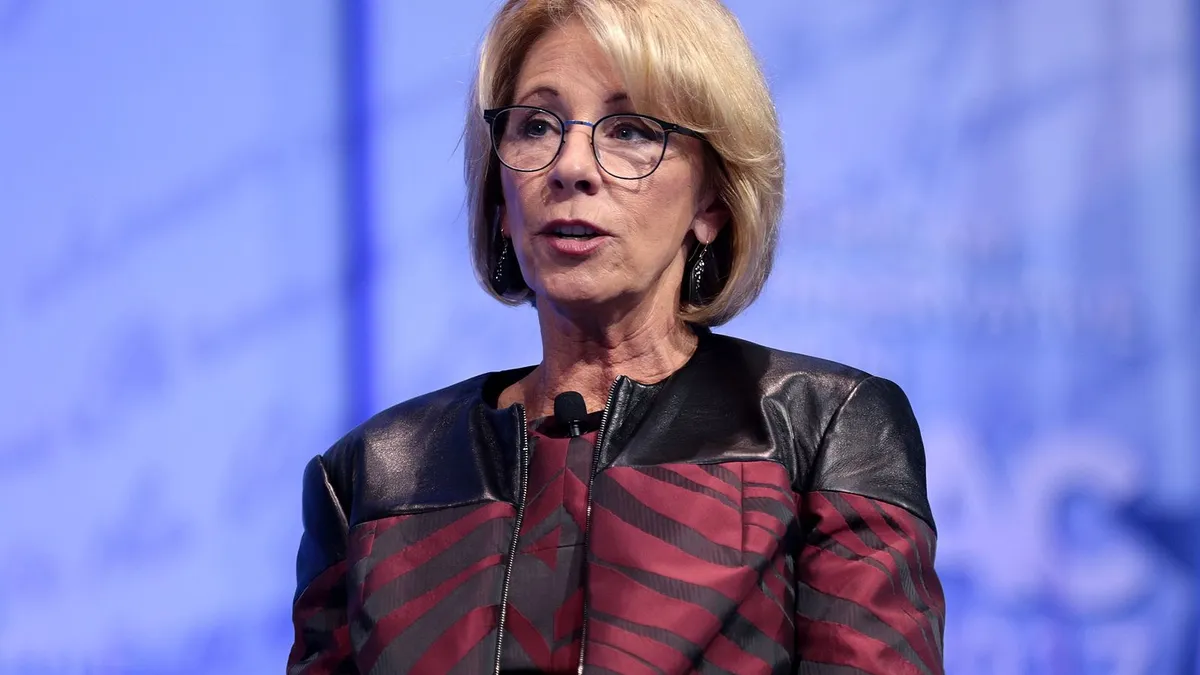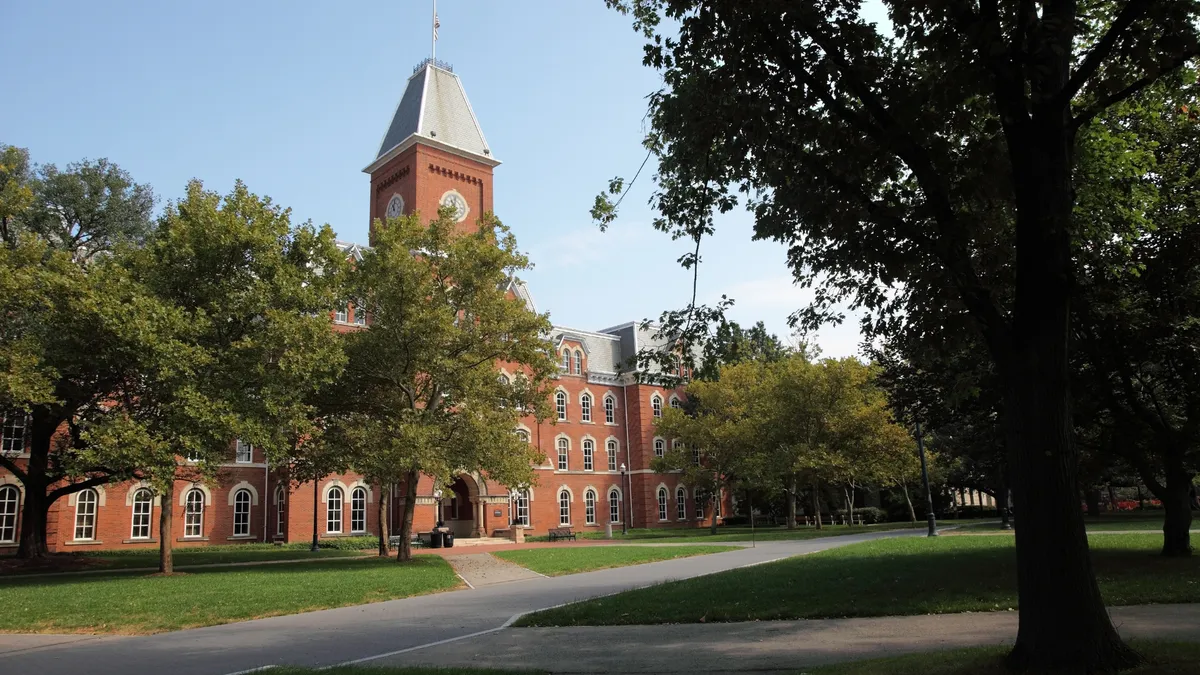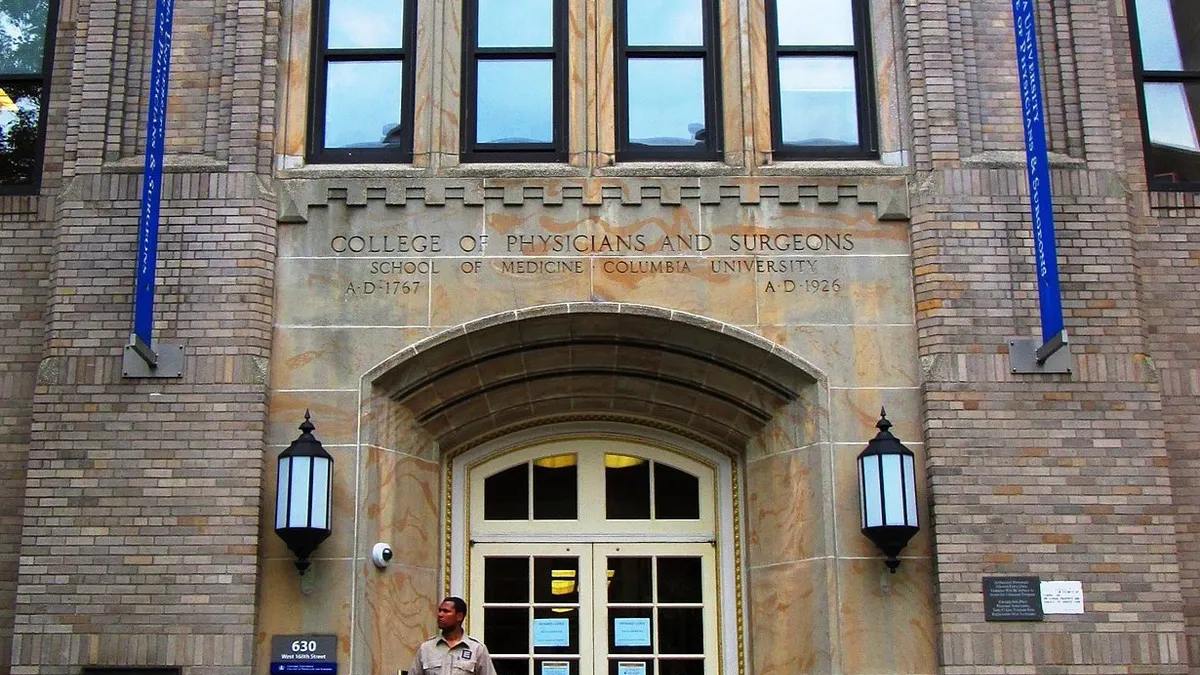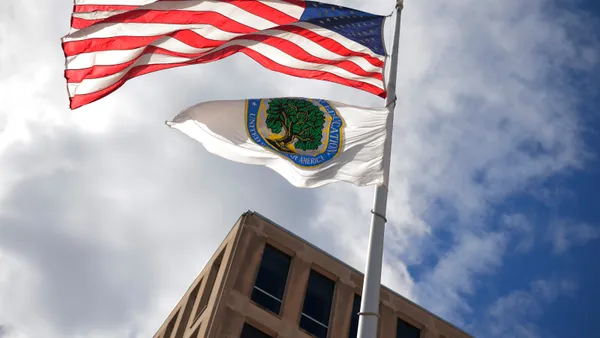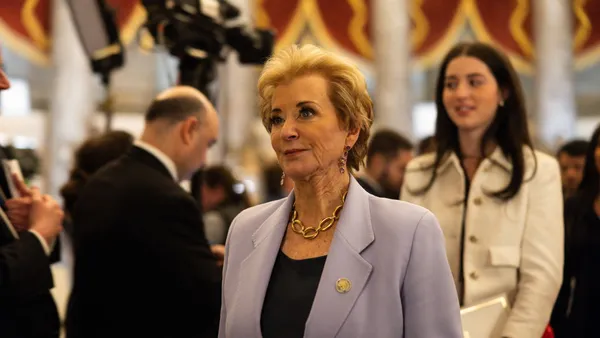Dive Brief:
- Many of the provisions outlined in the Obama Administration's 2011 guidelines on campus sexual assault policy, which Secretary DeVos has criticized for creating a "failed system," are actually protected by law under the reauthorization of the Violence Against Women Act (VAWA) in 2013, reports Inside Higher Ed.
- Experts projected a legal showdown between institutions and the department after many states have already adopted the 2011 guidance standards into law as well.
- In addition to obligating institutions to investigate incidents, VAWA emphasizes transparency and fairness in hearings, victim confidentiality, but does not outline evidence standards — which can sometimes make administrators feel overwhelmed in how they ought to handle misconduct, according to DeVos and others.
Dive Insight:
Since she came into office, Secretary DeVos has made it clear that she wanted to overhaul Obama-era sexual assault policies for creating what she calls to be a "failed system" for protecting both the rights of victims, and the accused. While the 2011 guidance obligates institutions to provide fair and transparent hearings for victims, critics including DeVos have said the rules create few standards for provision of evidence — which often leaves administrators unsure of what to do, especially when dealing with a high-profile and potentially messy legal battle. It's true that since the Title IX guidance and increased efforts to publicly condemn rape culture, there has been an increase in lawsuits around sexual assault; but uncertainty over whether all of them are legitimate is creating the division among education stakeholders on how to handle incidents.
"Washington’s push to require schools to establish these quasi-legal structures to address sexual misconduct comes up short for far too many students. The current system hasn’t won widespread support, nor has it inspired confidence in its so-called judgments. … Survivors aren’t well-served when they are re-traumatized with appeal after appeal because the failed system failed the accused. And no student should be forced to sue their way to due process," she said in remarks to students and faculty at George Mason University September 7.
DeVos has yet to give any indication on the specific changes she would seek, which means that both supporters of the Title IX protections and critics may still have to wait to see what exactly is going to happen. However, there is strong indication that there will be more emphasis on the rights of the accused to due process, which is something recent reports say institutions overwhelmingly handle poorly.
"A better way means that due process is not an abstract legal principle only discussed in lecture halls. Due process is the foundation of any system of justice that seeks a fair outcome. Due process either protects everyone, or it protects no one," the Secretary said to the audience at GMU. "The notion that a school must diminish due process rights to better serve the 'victim' only creates more victims".


